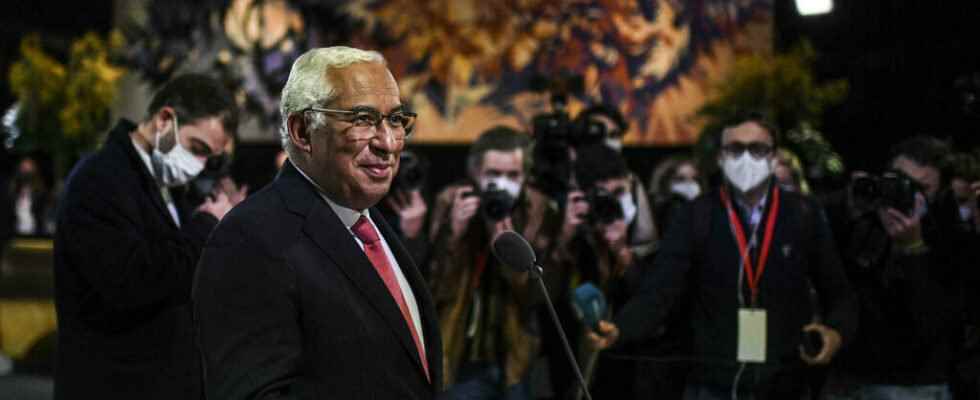The Socialist Party of Prime Minister Antonio Costa, 60, easily won the Portuguese early legislative elections on Sunday 30 January. But he might not get an absolute majority. These elections are also marked by a breakthrough of the far right.
Favorites, then in bad shape and finally victorious. The last few days had suggested that a collapse of the socialists was possible in Portugal, but this is not the case, observes our correspondent in Lisbon, Marie-Line Darcy.
Abandoned last October by his far-left allies and the Communists, over a disagreement over the draft budget, which caused the convening of these legislative elections, Antonio Costa took his revenge on Sunday.
The useful vote seems to have benefited the socialists, while the radical left is collapsing as a parliamentary group in the Assembly.
According to projections published at the exit of the polls by three national television stations, the PS came out on top with 37 to 42.5% of the vote. He could thus elect between 100 and 118 deputies out of a total of 230, thus potentially improving his score for 2019 (36.3%, 108 deputies).
But he could, as at the time, remain below the absolute majority of 116 deputies, it is still difficult to know at this stage. If necessary, the former mayor of the capital should then find support in Parliament, which is not won in advance.
►Read again: In Portugal, early legislative elections with a more than uncertain result
Antonio Costa could turn to one of the two other left-wing formations, in order to be able to govern – it will also be necessary to count on the four deputies elected by the Portuguese in the diaspora.
In view of the projections published at the exit of the polls, Parliament should indeed remain on the left, the Left Bloc totaling three to ten seats and the communist/ecologist coalition between three and eight others.
As for the main opposition party, the Social Democratic Party (PSD, right) of Rui Rio, 64-year-old former mayor of Porto, it missed its chance, coming second with 27 to 35% of the vote, which should bring him between 75 and 95 seats.
The surprise comes from the far right: with six to 14 elected members and up to 8.5% of the vote, the anti-system Chega (“enough”) party, chaired by André Ventura, could be propelled to the rank of third political force in the country, whereas there has been only one MEP so far. He could form a parliamentary group from seven deputies.
A real change in Portuguese political life. Since the end of the dictatorship in 1974, and until the 2019 election, this country of 10 million inhabitants still did not have a far-right party in Parliament. The protest vote that he represents will have to be taken into account by the next government.
►Listen again: In Portugal, “what was problematic were the social orientations of the 2022 budget”
